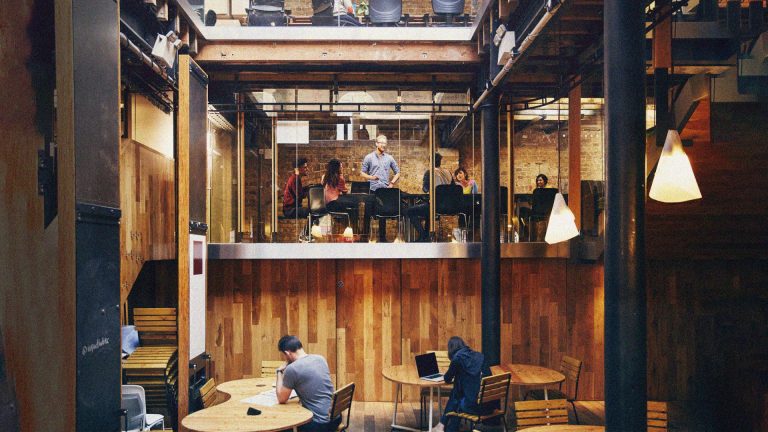Finding the perfect work/life balance has become this century’s search for the holy grail, but can a career spent working from home really be the answer? As the recent school half-term break came to an end, many parents who were WFH were surely left feeling a pang of nostalgia for the relative calm of the office and the coffee machine.
The belief that WFH was bolstering productivity looks increasingly dubious. Productivity is notoriously difficult to measure accurately, and the only statistic that remains remarkably consistent in surveys is that the UK is a poor performer relative to the United States and many European countries.
The latest figures from the Office for National Statistics showed that UK productivity in the first quarter of this year was slightly lower than it had been a year earlier. Perhaps that’s connected with the fact that the UK has been so far behind other countries in encouraging people to return to the office.
There will be some individuals in certain, technology-based roles who will be at their most productive when kept in total isolation from the rest of humanity, but they are surely the exceptions.
Ironically, it is the tech giants themselves that have been dispelling the shibboleth that WFH is best, instructing staff to return to the office for at least a majority of the working week. Amazon is particularly draconian, with a strict demand of five days a week.
Arguments in favour of physical presence tend to centre around team and culture building, and the benefits of being able to bounce ideas around, much of which is difficult to duplicate on video calls. It is also extremely difficult for youngsters who are new to a business to learn the ropes and build relationships if they are not learning from constant interaction with more seasoned colleagues.
But there are so many other factors which mean that complete remote working is not the optimum solution. It has become the norm to portray the office as a soul-destroying place in which miserable bosses make ludicrous demands, summon pointless meetings and generally suck the joy out of their staff. Ricky Gervais produced a brilliant satire of office life – but it was a comedy show.
Real life is more nuanced, even with imperfect bosses and silly rules. For many, the office also provided a camaraderie and social life that they lacked elsewhere. It was a place to share jokes and bemoan mishaps or just compare thoughts on the previous night’s television viewing. It could even be the setting for a celebration of a small business victory or near success.
Suggested Reading


Bring back office culture!
None of this is easily replicated on a video call. In many cases, the regular video call that might be intended to bring together a remote working group will tend to concentrate only on the negatives that need to be addressed, leaving participants on a low note rather than uplifted.
Perhaps, in an ideal world, we would all enjoy our work so much that we would struggle to draw a line between what constitutes work and what might be termed “life”. I know of few people for whom that is the case. Even if they love what they do to earn a living, they appreciate the ability to close the door on it and concentrate completely on something else. Walking out of the office at least represents a step in that direction. In a big house, that separation might be achieved but, where the “workstation” is actually the kitchen table, there is no hope of a proper escape.
The difficulties of working from home become even more pronounced when children are involved, not that it is easy to combine the two in any circumstances. In the days when the textbook family was assumed to have a father who worked and a mother who stayed at home and looked after all domestic matters, this was not seen as an issue. But today, there is often only one parent involved and, if there are two, both are expected to work and, generally, financial survival requires it.
Childcare being ludicrously expensive in the UK compared with the rest of Europe, successive governments have moved towards partial help with funding, but it is nowhere near enough to pay for the care that parents would need in order to combine a family with full-time careers. Working from home cannot solve this problem: inevitably it will simply leave some harassed parents trying to deal with, on the one hand, a child hoping to enjoy a long summer holiday, and on the other, a client desperate for the assignment to be turned around quickly. Then comes a call from the nursery saying that the youngest member of the family has developed a soaring temperature and spots are appearing all over her face… and asking you to please collect her immediately.
Any decent employer would say that a health crisis demanded priority and usher the parent out of the office. Dealing with short school days and long school holidays, however, constitutes a more systemic issue that the country must confront creatively. Extended families used to provide the answer, but are no longer available to many parents. Working from home is certainly not the solution, and those who try to pretend it is risk driving themselves to a nervous breakdown and their employers to disappointment.
We all need a degree of flexibility in our working arrangements, but a presumption in favour of the office makes sense to me.




